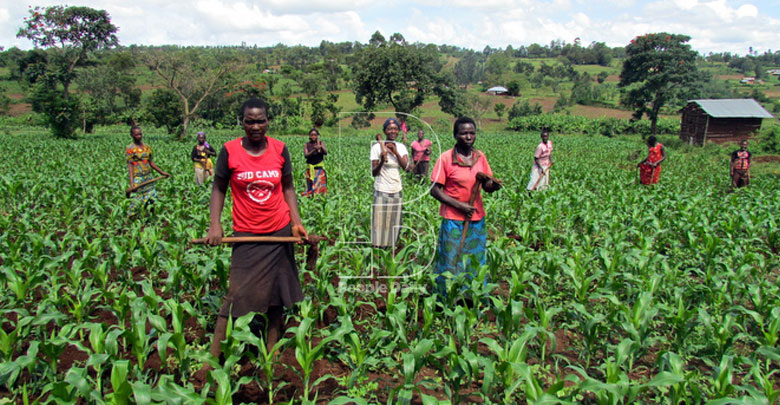Maize reserve stores empty, says Strategic Food Reserve
By Bernard Gitau, March 26, 2020Bernard Gitau @benagitau
Kenya is facing a crippling food shortage, the Strategic Food Reserve (SFR) chairman Dr. Noah Wekesa warned yesterday.
“Our stores have nil stock. We sold our stock of four million bags last year and we have not purchased a new stock because the market price is beyond government reach,” Wekesa told People Daily.
Reeling from the effects of the locusts invasion, a struggling economy and now the coronavirus crisis which has virtually shut down the country, the situation could even get worse.
Wekesa’s warning comes amid the government’s stringent measures, including the shutdown of markets across the country to tame the spread of Covid-19.
Were the country to go into total lockdown, the situation could be dire for a population which faces perennial food shortages.
Wekesa said the board, which offered Sh2,800 per 90kg bag, was unable to buy maize from farmers for stocking because millers and other traders were buying for between Sh3,000 and Sh3,200.
“We are in a fix right now with no reserves in our stores. The Ministry of Agriculture must take urgent action to protect Kenyans from starving,” said Wekesa.
Hand to mouth
He revealed that two months ago, the board asked the ministry to fasttrack the re-stocking of the national reserves but it is yet to get a response.
Wekesa said the ministry should use money from the Strategic Food Reserve Fund, which was primarily established for a time of crises like the current one, to buy enough food to last for at least one month.
On Tuesday, former Cabinet minister Martha Karua urged the government to come up with a hunger rescue plan in the face of the Covid-19 crisis.
With a majority of the population living from hand to mouth, she said it was important to cushion Kenyans from suffering.
“We have two countries we can get GMO free maize: Ethiopia and Mexico,” she said.
But Wekesa said Mexico is the only country that Kenya can obtain maize from because Ethiopia is also battling the coronavirus crisis like Kenya.
“If we get the go-ahead to purchase maize from Mexico immediately, the stock will be available latest in May,” he said.
He said Kenya would not allow maize from Uganda and Tanzania, saying it is of poor quality and has aflatoxin.
Wekesa said the shortage of food had been worsened by high post-harvest losses as a result of heavy off-season rains.
“We have come out of a harvesting period but we recorded a high post-harvest losses of about 30 to 35 per cent because of excess rainfall,” he said.
Wekesa said the country had expected to harvest 40 million bags of maize, but less than 30 million bags were realised.
Empty stores
“If we have the Covid-19 in the next two to three months and we have only stock for a month, the crisis we are staring at is unimaginable,” he warned.
Wekesa also revealed farmers have exhausted their stock, with only a few large-scale farmers hoarding maize in anticipation of better prices.
“We have been receiving calls from millers and traders saying they are running out of stock,” he said.
Wekesa said the government should use Sh10 billion in the board’s account to buy at least three million bags at the cost of Sh3,000 per bag.
Agriculture Cabinet Secretary Peter Munya is reported to have declined the request to buy maize, saying an audit has to be carried out first.
Munya’s stand rekindles memories of last year’s supremacy wars between the Agriculture Ministry and SFR.
Wekesa urged the government not to allow traders to import maize, saying they would inflict more suffering on Kenyans by inflating the cost of flour.
“If they are allowed to do so, SFR must be involved to supervise the quality and other standards,” he added.
Stakeholders warn that in the event of a total lockdown, demand for food would skyrocket and push up prices.
But Tegemeo Institute of Agricultural Policy and Development of Egerton University has allayed fears that the country will be hit by a food crisis.
Timothy Njagi, a senior research fellow with the institute, said farmers have enough maize and called on the government to discourage panic buying.
In the past one week consumers have been buying food and other essentials in large quantities, leading to increase in food prices in some market segments.
“Panic buying can cause food wastage especially if the outbreak of the virus is contained in the short term.
The country food situation is stable at the moment there is no need for panic,” said Njagi.
He, however, agreed that in the long run, there is need to allow imports to stabilise the market as the next harvest is not expected until July.
